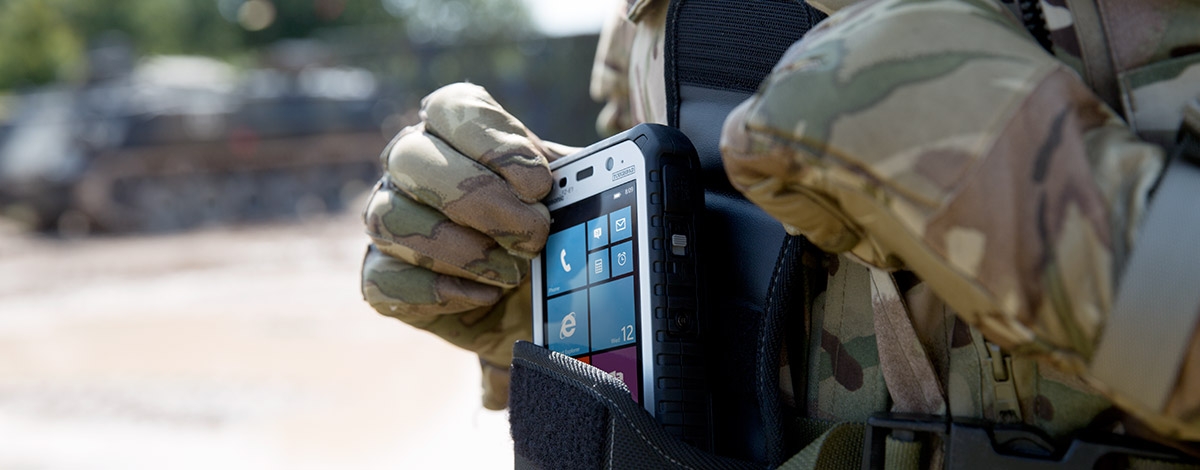
How to Choose the Right IP Rating for your Mobile Device
The use of mobile devices for industrial business applications
Many businesses in a variety of different industries are moving away from using traditional or fixed computers because mobile devices like laptops and tablets can do the same things – with the added benefit of being able to be transported almost anywhere. However, mobile electronic devices and equipment are susceptible to more damage by people, property, rain, dust, and all sorts of other conditions. To protect and improve their lifespan, it is important to consider the application, environment and associated challenges.
Gadgets like laptops, tablets, mobile phones, smart watches and action cameras can be used indoors and outdoors. As a result, dust and moisture can wreak havoc as devices are exposed to different weather conditions.
So, how do you select a device which is right for the environment it will be used in?
The simple answer is to choose the right level of protection.
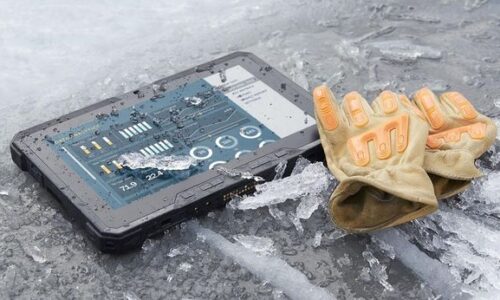
What is an IP rating?
The International Electrotechnical Commission (IEC) set out to standardise electrical technology for improved performance and safety for electronic devices. This is called an IP (ingress protection) rating, also occasionally referred to as international protection.
IP ratings are very important in industrial and rugged mobile computing environments; they measure whether dust and water can ingress to your device. In other words, it specifies the level of protection required from foreign bodies and liquid.
The ratings are laid out with two digits, e.g. IP23. The first digit reflects the protection from solid objects; the second digit reflects protection from liquids. The higher the number of each digit, the greater the level of protection. For applications where one of the two does not apply, that digit is replaced by an X, e.g. IPX6.
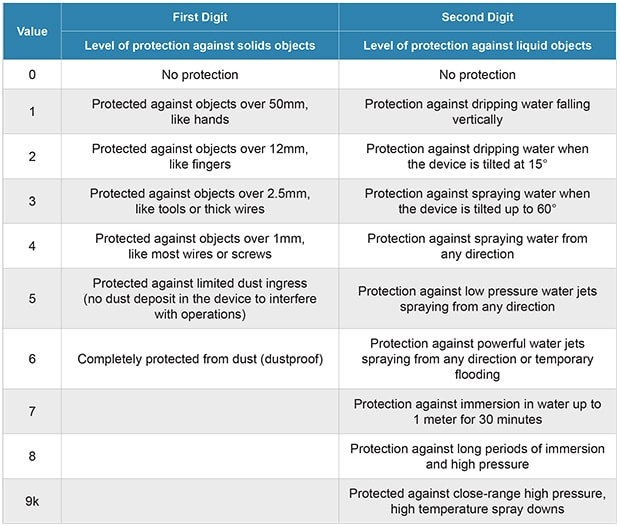
Use cases: How to choose the right IP rating for rugged tablets or laptops
The IP rating a device requires depends on the application and the environment in which it will be used.
Take for example, mobile devices being used in oil and gas applications, where most commercial computers and laptops are not durable enough to withstand the environment. In this instance, rugged tablets with IP68 and potentially explosive atmosphere test certification will be the best option, providing complete functionality without risk.
In recent years, tablets have become a huge interest for the mobile workforce. Industries such as waste management and field services use these devices for applications like data capture and route optimisation. An example of this kind of use case is when a courier comes to deliver your parcel and uses a handheld tablet to capture your signature.
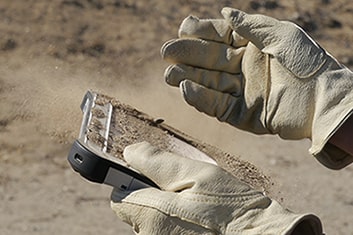
IPX4 could be an ideal rating for these applications as, notoriously in the UK, couriers find themselves working in the rain. But when we start digging a little deeper, it’s possible that the tablet may be accidentally dropped during use, for example, when scanning barcodes or manually handling a truckload of packages.
It quickly becomes apparent that IPX4 is not sufficient, as the tablet also needs to be protected against full liquid immersion in light of the risk of being dropped in puddles.
In this case, a rating of IP67 is an ideal choice as the tablet becomes totally dust-proof and capable of immersion in water up to a depth of one metre for a maximum of 30 minutes. The additional dust-proofing will protect the internal components from any dirt or gravel if the device impacts the ground.
These days, some restaurants book tables and take orders through mobile EPOS, another use case example of a device needing IP-rated protection. Although these platforms may not need to be used outdoors, they are still at risk of water damage from spillages. In this case, a tablet with IP-54 protection would provide protection from limited dust and water spray from any direction.
Factors affecting IP rating
Sometimes, a self-contained tablet won’t have the necessary functionality to get the job done. In these instances, they may require external peripherals to be connected, such as a 2D barcode scanner or mobile data dongle.
IP ratings of tablets are typically maintained through the use of sealed rubber or plastic caps over device ports. Connecting external devices will require the caps to open, providing access to the I/O ports within. This can negatively impact the IP rating of the tablet, as the ports are now open to the elements and thus unprotected.
In these cases, it’s worth considering wireless connectivity such as Bluetooth, to maintain the IP rating. If this is not an option, a variety of lockable or military standard connectors such as MIL-DTL-48999 can be designed into a customised case to maintain the IP rating while the peripherals are physically connected.
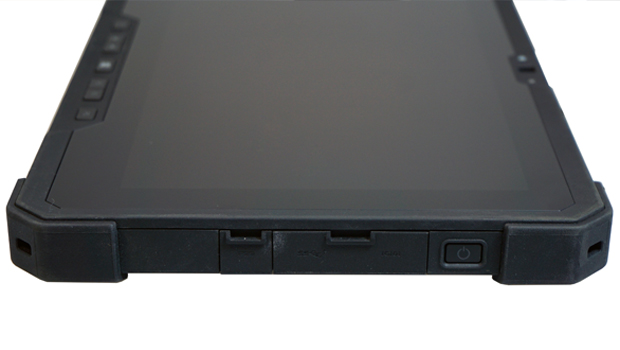
Summary
So, you can see, there are many benefits of selecting a mobile device with the correct IP rating, with many things to consider, based on the industry and environment the device is being used in.
For further information on our tablet engineering services, see our web page on custom built tablets



